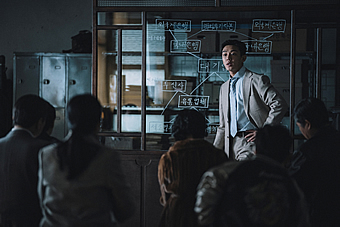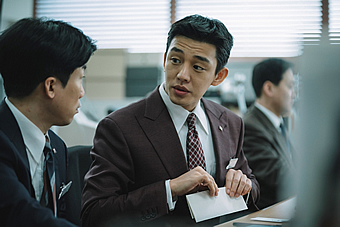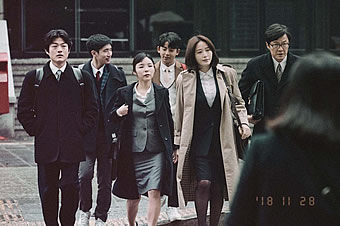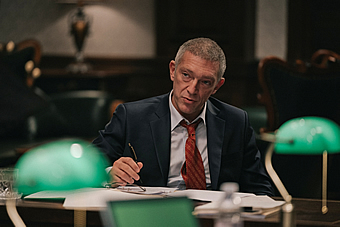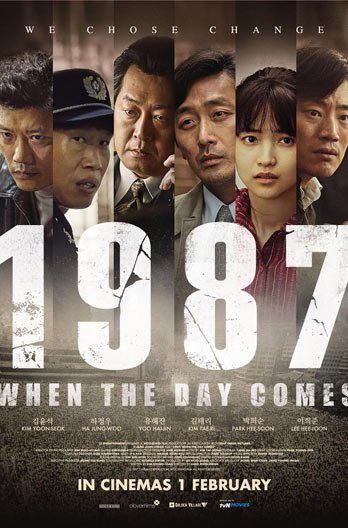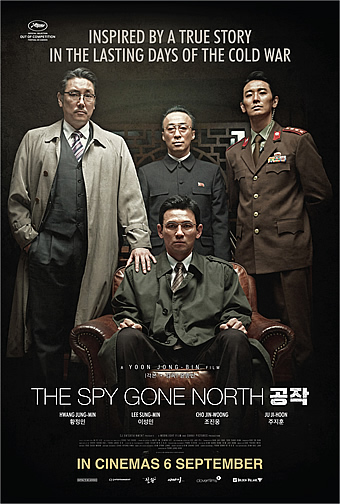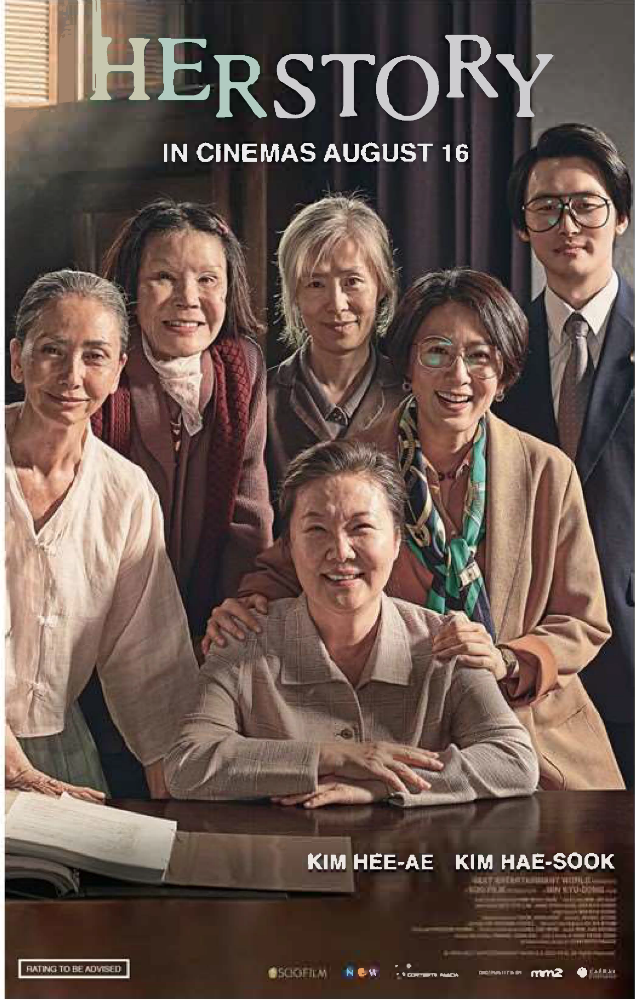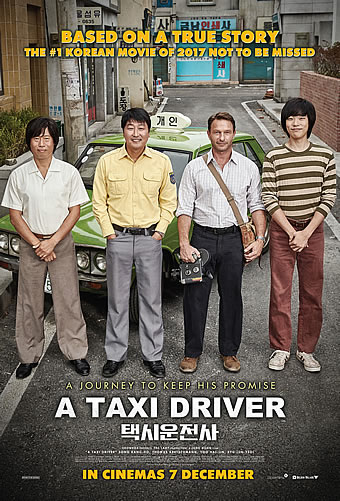DEFAULT (국가부도의 날) (2018)
Genre: Drama
Director: Choi Kook-hee
Cast: Kim Hye-soo, Yoo Ah-in, Huh Joon-ho, Jo Woo-jin, Vincent Cassel
RunTime: 1 hr 54 mins
Rating: PG
Released By: Golden Village Pictures and Clover Films
Official Website:
Opening Day: 3 January 2019
Synopsis: Si-hyun (KIM Hye-soo), the monetary policy manager at the Bank of Korea, predicts a massive national financial crisis and reports it to the Director. The Director doesn’t schedule an emergency summit until 10 days later but does it without notifying the public of the situation. Si-hyun urges for the crisis to be announced in order to warn people of the looming disaster, but her plea is ignored. The summit is held behind closed doors.
Jung-hak (YOO Ah-in), a financial consultant, notices Korea is suddenly hemorrhaging foreign funds, and he learns the reason is that international finance firms have ordered an all-out investment withdrawal from the country, which has caused the credit rating to plummet. He hands in his resignation and decides to play the odds on what he’s sure is a coming crisis. He secretly starts gathering investors willing to do the same.
Gap-su (HUH Joon-ho), a family man who runs a small tableware factory, has a big break and wins a contract with a department store. The fact that the price settlement terms equal to little more than a promissory note concerns him only briefly, and oblivious to the looming financial upheaval, Gap-su signs the contract.
The Managing Director of IMF (Vincent CASSEL) comes to Korea just one week before the country goes bust, and that is when those who try to prevent the crisis, those who seek to take advantage of it, and those only trying to protect their livelihood are caught in the wake of a national bankruptcy.
Movie Review:
‘Default’ follows in the footsteps of critically acclaimed Hollywood dramas like ‘Margin Call’ and ‘The Big Short’ in dramatising the events leading up to real-life financial crises in history, and to director Choi Kook-hee’s credit, puts a compelling local spin on familiar themes of over-spending, Government inertia and ‘too big to fail’. Whereas its genre cousins placed the spotlight on the 2009/09 Global Financial Crisis, ‘Default’s’ backdrop is the one before that, namely the 1997/98 Asian Financial Crisis. That was arguably even more devastating to the Korean economy than the more recent GFC, with commentators proclaiming it as the worst recession in the post-war era. Just as significantly, that event would also be remembered for the IMF’s subsequent bailout package, which has largely been regarded as humiliating by the Korean people given its conditions on labour market reform and foreign capital.
Three parallel stories establish what happened in the weeks leading up to the peak of the crisis, recounting the experience through characters in different strata of society. At the governmental level, we follow the head of monetary policy in the Bank of Korea Si-hyun (Kim Hye-soo), who is the first to flag the impending crisis to the political leadership. After the bank’s Director sits on her team’s report for 10 days (thus wasting precious time in averting the ‘time-bomb’), Si-hyun is drafted into the taskforce that also comprises the Deputy Minister for Finance (Jo Woo-jin) and is led by the President’s Secretary for Economic Affairs. The antagonism between Si-hyun and the Vice-Minister is clear from the beginning – while the former seeks only to do what is best for the people and nation, the latter’s considerations are purely tactical, not only in opposing the former’s suggestions to go public on the crisis but also advocating subsequently for the IMF’s involvement.
Reflecting the point of view of the man on the street is Gap-su (Huh Joon-ho), a young father of two who runs a small tableware factory that wins a contract with a major department store to supply it with its wares. Rather than cash, the department store owner pays Gap-su with a promissory note issued by a Korean merchant bank, and although the unfamiliar mode of payment makes him slightly apprehensive, Gap-su eventually goes ahead with the deal. Alas the bank collapses under the weight of its loans that fateful week, rendering the note practically worthless and leaving Gap-su at a loss of how to pay his creditors. Gap-su’s desperation quickly turns into despair, and as he observes others around him in similar predicaments commit suicide, he contemplates if he should do likewise.
Between those who had the power to avert/ contain the crisis and those who were powerless to do so are those who were in the institutions that each contributed to it in their own small ways. The negligent and even careless practices at one such institution is depicted in the arc centred on Jung-hak (Yoo Ah-in), a brilliant financial consultant who foresees the crisis before it happens, quits his job at the institution and gathers a couple of his clients to sell them a plan to exploit the impending sovereign default. Only two of them are crazy enough at a time when it seemed like South Korea’s economy was booming to trust Jung-hak’s judgment, but as powerless as they would have been to stop the inevitable, the trio will find themselves confronted with the ethical nature of their actions, not least because they seem to be profiteering off the misery of others.
Relative to one another, there is more emphasis on Si-hyun’s narrative arc; in particular, the latter half of the film devotes a fair bit of time portraying the negotiation proceedings between the representatives of the Korean Government and the IMF’s Managing Director (Vincent Cassel). Unsurprisingly, the movie taps into the zeitgeist in portraying the IMF as self-centred, arrogant and unreasonable, pitting Cassel’s IMF official against Hye-soo’s Si-hyun during the hush-hush negotiations that Woo-jin’s Vice-Minister seizes upon as a opportunity to restructure the Korean economy in favour of the ‘chaebols’. There is a very obvious nationalistic slant here, but you’ll probably still root for Si-hyun as she stands up for her country and countrymen’s interests in trying – though ultimately failing – to push back against the IMF’s unreasonable bailout demands.
Given that many of his fellow Koreans would still have searing memories of the 1997 crisis, it would have been culturally inappropriate for Choi to follow Adam McKay’s satirical approach in ‘The Big Short’; instead, as it turns out, ‘Default’ is as grounded and down-to-earth as it gets, and told with the utmost solemnity. To Choi’s credit, the proceedings never become overdramatic at any point, and remains engaging and comprehensible even to the casual viewer. Choi also has a good grip on the pacing and tone of the film, keeping both tight and gripping throughout the movie itself. He is aided by strong performances from the ensemble cast, each of whom bring gravitas to their characters in their own right; in particular, Kim deserves special mention for her thoroughly committed act as Si-hyun, portraying her character’s deep-seated convictions with utter clarity.
‘Default’ ends with an epilogue set in present day, cautioning us that the lessons of yesterday still remain as relevant and urgent as ever today. While that clearly indicates the film’s ambitions for a sequel, the confidence that Choi displays here makes the case for one quite strongly. Truth be told, it’s not easy trying to make a film about a financial crisis, not only because of its complexity but also because it would require no insignificant degree of scope in order to do the event justice. Here, Choi manages both successfully and even exceedingly, without blindly following in the creative footsteps of its Hollywood genre predecessors. To say that ‘Default’ is enjoyable to watch probably sounds like a misnomer, but you’ll surely be engrossed in this fascinating account of how a country and its people were brought to their knees and are today still recovering from the bruises of that indelible episode.
Movie Rating:




(Tense, compelling and often fascinating, this multi-narrative account of the 1997 Korean financial crisis will take you right to the heart of how a country and its people were brought to their knees)
Review by Gabriel Chong
You might also like:
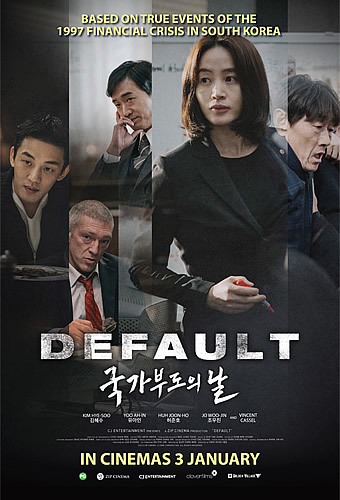
Movie Stills
